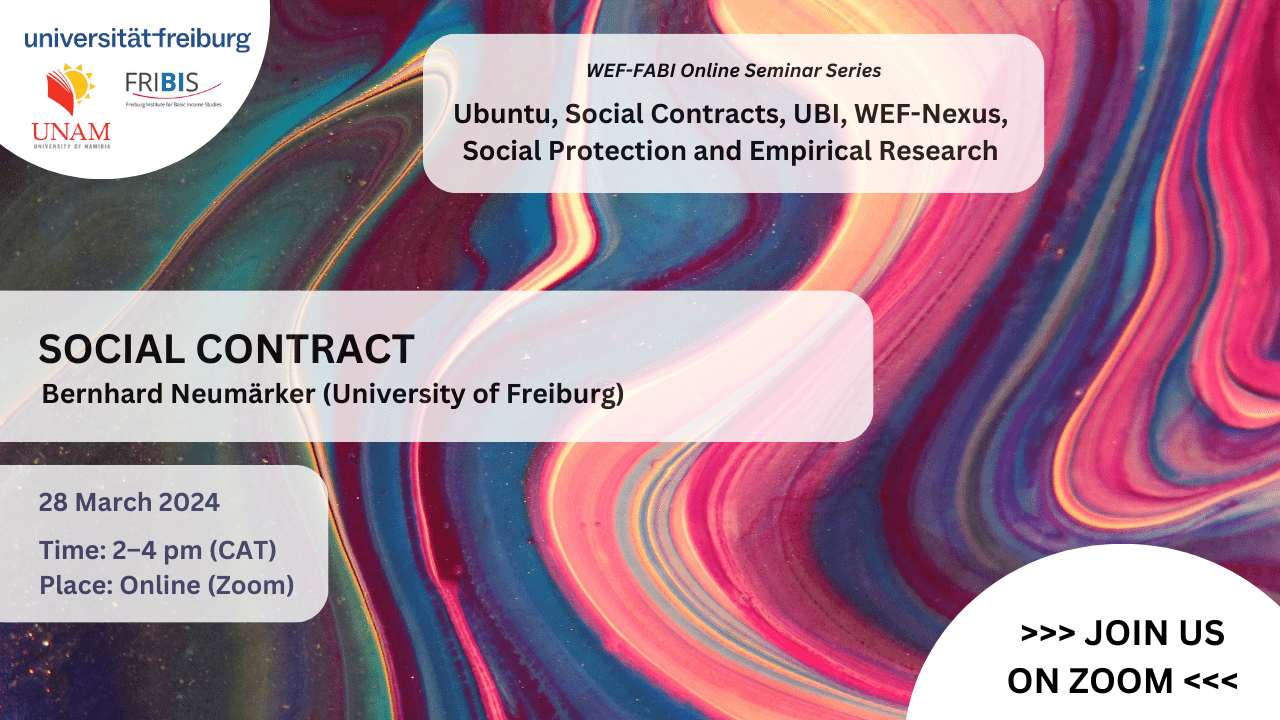
- Diese Veranstaltung hat bereits stattgefunden.
WEF-FABI Online Seminar Series – Social Contract
März 28, 2024 @ 1:00 pm - 3:00 pm


WEF-FABI Online Seminar Series
Presentation 2: Social Contract
Bernhard Neumärker (University of Freiburg)
This presentation introduces the tradition of the social contract. It pays particular attention to its significance for the economy and further establishes a link between social contract theory and basic income. After that it explores the question of how a basic income can be firmly anchored in a society. In doing so, it establishes the concept of New Ordoliberalism and shows its possible impact within a theory of justice based on the integration of UBI in social contracting.
Zoom Link: https://uni-freiburg.zoom.us/j/66244057843?pwd=eU5rOTlpSTJjcERmUUVnUWhZYmpDZz09
Ubuntu, Social Contracts, UBI, WEF-Nexus,
Social Protection, and Empirical Research
Together with our partners at UNAM the WEF-FABI TEAM will host an online seminar series on “Ubuntu, Social Contracts, UBI, Water-Energy-Food Nexus, Social Protection, and Empirical Research,” starting on 21/03/2024. With assorted guests, the series will create a path of interconnections and differences between these topics and ask how their elements fit together. We want to examine how Ubuntu can be used in social experiments. Finally, the workshop findings will be incorporated into joint work (e.g. joint papers or field studies).
“Ubuntu” is a bond of unity amongst the people of Africa (Asike 2016, p. 7). In this sense, ubuntu is a philosophy that justifies norms and deliberate rules. With that, it touches common ground with the tradition of the social contract theory. In our series, we will follow various questions connecting these two traditions of thought: What are the main positions in these philosophical traditions? What are the similarities/differences between ubuntu and social contract theory? How can the shared features of the two of them be connected? We will then confront philosophical insights with the idea of a universal basic income and further link the various strings to possible impacts on social policy interactions. We take a look at the trade-offs between different policies and sharpen our awareness of the water-energy-food nexus and social protection. Finally, we will see how we can use empirical methods to normative justify policies and contribute to solving trade-offs.